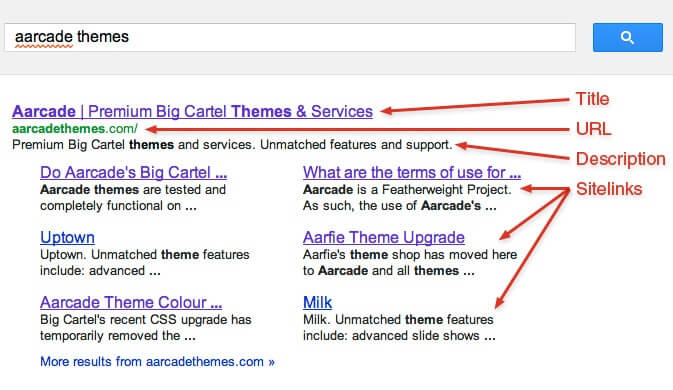Have you heard about SEO cannibalization, yet? If not, do not worry too much, we will try to explain and teach you to avoid it.
For those who own a site, but do not yet have very solid technical notions of SEO, we decided to come to your aid with a short explanatory article on cannibalizing keywords and how this “phenomenon” influences ranking in SERPS.
In the absence of experience, it is very possible to start from the premise that if you target the same expressions in several pages of the site, you will get better positions in Google search results. Not only is this approach unnatural, but it can also be particularly damaging to Google’s current positions!
What is SEO cannibalization?
In other words, without realizing it, your “strategy” will have the opposite effect than expected. In the “best” case, your site will stagnate on pages 3-4, which translates to zero visibility in the search engine, so low traffic and unsatisfactory revenue. Moreover, this situation can negatively influence the user experience, which will lead to a decrease in the conversion rate.
For example, we face this problem in online stores. We have projects that occupied good positions with product pages, and the category pages, which are much more relevant for users, were not even in the top 50. Product pages receive clicks, but they also have a high bounce rate.
For further clarification and suggestions, keep reading our article!
- What does cannibalizing keywords in SEO entail?
The phenomenon of SEO cannibalization or keyword cannibalization occurs when one or more search terms for which you want a certain page of the site to rank in Google are excessively entered in other pages of the site. community.
In other words, instead of optimizing a single page for one or more keywords, you will optimize other pages on the site using those words or very similar terms. Cannibalization takes various forms and can even target blog articles optimized identically to each other or to another page on the site, whose ranking should remain a priority.
As a result, since you will have multiple pages that rank for the same keyword, the principle of uniqueness specific to SEO optimization will be lost. The outcome? Losing the right position in Google!
-
SEO cannibalization: types of cannibalization
Not every cannibalization situation is automatically a problem! Cannibalization generally happens unintentionally – or rather, unknowingly. But there can also be SEO strategies well thought out and controlled by specialists, which aim to rank as high as possible with two pages simultaneously.
2.1. Two or more pages on the site “fight” simultaneously for the same keyword
This case of cannibalization can generate situations such as:
- Both landing pages occupy top positions on the first page of the SERPs. This means more traffic to your site and we can talk about “good” cannibalization.
- The main page occupies a leading position, while the secondary pages that target the same search expression are not even in the top 20. This cannibalization situation is a minor problem, which does not bother and whose solution remains at your discretion.
- Both pages rank very poorly, “fighting” each other without success and without either being on the first page of Google results. In this case, we are already talking about a major cannibalization problem, which is an emergency!
2.2. Two or more pages on the site rank by rotation
Such a situation is described by the fact that cannibalized pages appear at a time in Google search results, occupying various positions in different time periods for the same keyword. Generating volatility and inconsistency, this type of cannibalization is very common and requires effective solutions!
- How does SEO cannibalization work you and how much can it affect you?
Suppose that in your site there are two landing pages that cover the same topic and are optimized identically or approximately the same. In this case, because you will practically be in direct competition with yourself, Google will become “confused”. The search engine will not know which of the two pages is more relevant to the given expression and which to display above in its results.
Consequently, most likely both pages will occupy much lower positions than normal, cannibalizing each other and destroying any chance that any of them will occupy a top position. In particular, the page you would like to upload will collapse. And if you are not aware of this and do not take action, you will only “self-sabotage” in the long run!
SEO cannibalization can be such a serious problem that you can lose a lot in the rankings. For example, instead of being listed on the first page of Google search results, you can reach pages 5-10. This crucial detail will affect your conversion rate, site traffic, brand awareness, etc.
Note: In general, Google displays two, up to three results from the same domain for a given search term.
-
SEO cannibalization: how can you identify cannibalized pages?
There are three levels at which cannibalization problems can be detected:
– at the level of meta titles and meta descriptions;
– at the level of headings;
– at the level of the page content.
To find out if they target the same search terms and to find cannibalized pages, it’s pretty simple. You can find out after a search of your site on Google, for the word you suspect of multiple results (site: domain + keyword).
This method can also be applied preventively, when you want to create a new page and you want to quickly identify if another page on your site is already optimized for the search phrase you intend to include in your keyword strategy.
In the example below, we will see that the first two results target the same expression:
Here, however, is a “good” cannibalization. Both pages occupy leading positions in Google, in terms of strategy and objectives.
For a more in-depth analysis of the affected pages, depending on the type and complexity of cannibalization, there are tools such as Ahrefs or STAT.
- What can you do to combat cannibalization?
If you face a cannibalization problem that affects the organic growth of your site, you can resort to various solutions. First of all, analyze the content of the pages, its quality and performance. Then decide what to keep and what to delete.
5.1. De-optimization and re-optimization
Once you’ve decided on the page you want to rank on a particular search term, you can de-optimize the other competing pages by removing common keywords from content and meta tags. Careful! You will also need to update the structure of internal and external links for each of the cannibalized pages, making changes where necessary.
5.2. Combining pages through 301 redirects
If you have two or more pages that rank for the same keyword, but have equally valuable content and benefit from backlinks, you can combine them. Thus, applying 301 Redirect, you will get a single page much larger and stronger, with which you will have high chances to rank as high as possible.
5.3. Delete unwanted pages
If there are pages on your site that are not valuable in any way, but cannibalize a more important and potential page, you can simply delete them. But, before you delete them, check if they have backlinks! If so, apply 301 redirects to other similar pages on the site. If there are no similar pages, then simply delete them. Don’t perform a 301 redirect ”just because”! Google sees 404 pages and pulls them out of the index itself over time.
5.4. Applying the noindex tag
It is recommended only in exceptional cases, with caution! For example, some people apply the noindex tag to blog posts that, while useful to visitors, have the potential to cannibalize another page on the site that already ranks well in the SERPs.
5.5. Application of the canonical tag
Another option, if you want to keep on the site, under different URLs, pages with duplicate or similar content, each being useful for visitors in its own way, you can apply the canonical tag. In this way, you will specify to Google which of the pages is the main one and must be indexed to rank in search engines.
- Conclusion
Although there are people who do not consider that SEO cannibalization is a big problem, we believe that this aspect can pull you down a lot if it is not controlled. Our advice is not to ignore the phenomenon and not to follow the recipe “the more, the better”, because, as I said, you will end up sabotaging yourself!
As you have noticed, there can be different cannibalization situations and control solutions. To make the right decisions and measures, if you are not satisfied with the results of your site and you don’t know how to solve the problems that “eats” your success, ask the specialists!









